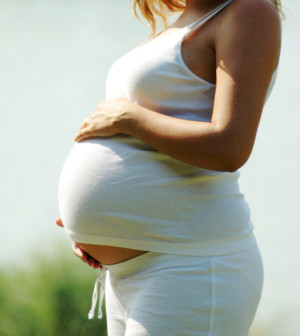- Double Mastectomy May Offer No Survival Benefit to Women With Breast Cancer
- Toxic Lead Found in Cinnamon Product, FDA Says
- Certain Abbott Blood Sugar Monitors May Give Incorrect Readings
- Athletes Can Expect High Ozone, Pollen Counts for Paris Olympics
- Fake Oxycontin Pills Widespread and Potentially Deadly: Report
- Shingles Vaccine Could Lower Dementia Risk
- Your Odds for Accidental Gun Death Rise Greatly in Certain States
- Kids From Poorer Families Less Likely to Survive Cancer
- Tough Workouts Won’t Trigger Cardiac Arrest in Folks With Long QT Syndrome
- At-Home Colon Cancer Test Can Save Lives
Whooping Cough Risk Higher Among Kids Who Miss Vaccinations: Study


MONDAY, Sept. 9Young children aged 3 months to 36 months who don’t get all their doses of the diphtheria, tetanus and acellular pertussis (DTaP) vaccine on schedule appear to be at increased risk for pertussis — also known as whooping cough — according to a new study.
Although vaccination rates in the United States are still high, a growing number of parents are concerned about vaccines and choosing to skip or delay them. These decisions, however, do have consequences, the researchers said.
“Children who aren’t immunized on time are at greatly increased risk for pertussis compared to kids who are vaccinated on time,” said lead researcher Jason Glanz, at the Institute for Health Research at Kaiser Permanente Colorado, in Denver.
These undervaccinated children miss their immunizations for a number of reasons, Glanz said. These include missed opportunities when getting checkups and limited access to care, as well as parents who don’t want to have several vaccines given during a single office visit.
“The best data we have suggests that the current vaccine schedule is both safe and effective,” Glanz said. “These alternative schedules may or may not be as safe, but they are certainly not as effective.”
Doses of the DTaP vaccine are recommended at ages 2, 4 and 6 months, at 15 through 18 months, and at 4 through 6 years, according to the U.S. Centers for Disease Control and Prevention.
The report was published in the Sept. 9 online edition of the journal JAMA Pediatrics.
For the study, Glanz’s team looked at cases of pertussis among children born between 2004 and 2008 and seen at eight managed care organizations. They identified 72 cases of pertussis and matched them with 288 similar children who didn’t have the disease.
Of 72 children with pertussis, 34 (about 47 percent) had not gotten the recommended four doses of the DTaP vaccine — compared with 64 (about 22 percent) of the children who didn’t have the disease.
Children who weren’t fully vaccinated for three or four doses of DTaP were about 18 and 28 times more likely, respectively, to have had pertussis than children who were fully vaccinated, the researchers found.
“Pertussis is the most frequent vaccine-preventable infection in the United States,” said Dr. Bruce Hirsch, an attending physician in the division of infectious diseases at North Shore University Hospital in Manhasset, N.Y. Hirsch was not involved in the study.
Whooping cough in babies has led to death from respiratory failure on occasion, he said.
“It causes a miserable long-lasting cough in adults, and it can be prevented with a well-tolerated vaccine,” Hirsch said. “The vaccine preparation that we now use to combat pertussis is safe and easy. There are new requirements that pregnant women receive this vaccine to help protect their newborns. Completing the vaccine series is important to protect the health of children, adults and especially our babies.”
In 2012, the United States had the most whooping cough cases since 1959 — 41,000 illnesses and 18 deaths, mostly in infants, according to the CDC.
Pertussis cases may be increasing for several reasons, study author Glanz said. Besides undervaccination of infants, immunity is also waning because the effectiveness of the vaccine declines over time. This may account for the increase of pertussis among teens, he said.
“There is also recent evidence that the booster shot is only moderately effective,” Glanz said, adding that a more effective booster vaccine is needed and perhaps a more effective initial vaccine as well.
“We also need better messages to help concerned parents make the best decision for their children, which is to get their vaccines on time,” he said.
Teens and adults should receive a booster shot to protect themselves and unvaccinated infants, according to the CDC. In addition, pregnant women should be vaccinated during each pregnancy.
Dr. Len Horovitz, a pulmonary specialist at Lenox Hill Hospital in New York City, said adults are just as vulnerable to the disease as kids. “There are adults who are having grandchildren who are instructed that they have to be immunized before the grandchild is born,” he said.
In 2010, nearly 28,000 cases of pertussis were reported in the United States but many more go undiagnosed and unreported, according to the CDC.
More information
For more about the DTaP vaccine, visit the Children’s Hospital of Philadelphia.
Source: HealthDay
Copyright © 2024 HealthDay. All rights reserved.










